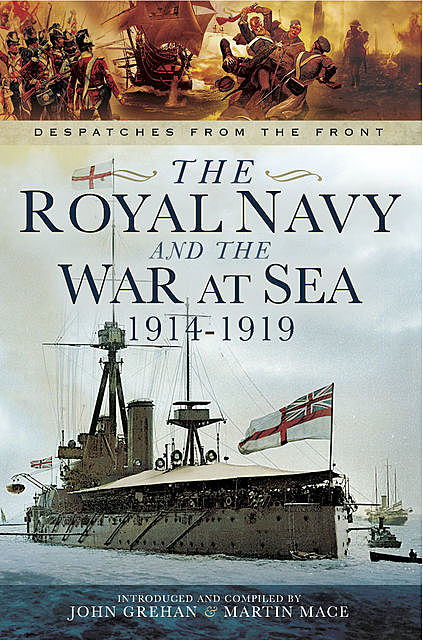We use cookies to improve the Bookmate website experience and our recommendations.
To learn more, please read our Cookie Policy.
To learn more, please read our Cookie Policy.
Accept All Cookies
Cookie Settings

Read in our apps:
iOS
·Android
Martin Mace
The Royal Navy and the War at Sea, 1914–1919
Notify me when the book’s added
Impression
Add to shelf
Already read
Report an error in the book
Share
Facebook
Twitter
Copy link
To read this book, upload an EPUB or FB2 file to Bookmate. How do I upload a book?
Germany's attempts to build a battleship fleet to match that of the United Kingdom, the dominant naval power on the 19th-century and an island country that depended on seaborne trade for survival, is often listed as a major reason for the enmity between those two countries that led to the outbreak of war in 1914. Indeed, German leaders had expressed a desire for a navy in proportion to their military and economic strength that could free their overseas trade and colonial empire from dependence on Britain's good will, but such a fleet would inevitably threaten Britain's own trade and empire.Despite this backdrop of large standing navies, naval warfare in the First World War was mainly characterized by the efforts of the Allied powers, with their larger fleets and surrounding position, to blockade the Central Powers by sea, and the efforts of the Central Powers to break that blockade or to establish an effective blockade of the UK with submarines and raiders. Indeed, the use of the former saw naval conflict enter a new era, one that affected every member of the British population and, in 1917, raised the spectre of a German victory.This unique collection of original documents will prove to be an invaluable resource for historians, students and all those interested in what was one of the most significant periods in British military history.Despatches in this volume include those relating to the events at Antwerp in 1914, Royal Navy armoured car squadrons, the Battle of Dogger Bank, the Battle of the Falklands, the Battle of Heligoland Bight, minesweeping operations, Royal Naval Air Service operations and attacks, and, of course, the Battle of Jutland.
more
This book is currently unavailable
365 printed pages
- Original publication
- 2014
- Publication year
- 2014
Have you already read it? How did you like it?
👍👎
fb2epub
Drag & drop your files
(not more than 5 at once)

